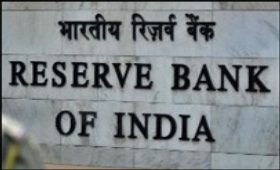|
|
|

|
RBI's loan recast framework to help realty
|
|

|
|
| Top Stories |
 |
|
|
|
SME Times News Bureau | 19 Oct, 2020
The Reserve Bank of India's framework for loan recast or stress
resolution for the Covid-19 related stress which allows banks to
restructure loans of real estate companies at the project level comes as
a major relief for developers who have been hit amid the pandemic and
their specific projects have come to a halt due to liquidity crunch.
According
to Anuj Puri, Chairman of Anarock Property Consultants, the RBI's move
to permit banks for restructuring of loans of real estate companies at
the project level rather than the entity level is "indeed a good move".
"It
will help restart projects which have been stuck due to the impact of
the COVID-19 pandemic. Both buyers and developers will stand to gain
when stuck projects will eventually see the light of the day," he said.
He
noted that from a buyers' standpoint, they will no longer have to wait
for an indefinite period for their homes. As for developers, they will
get the requisite liquidity to eventually complete their projects.
Overall,
it will ease liquidity within the cash-strapped real estate sector
which was already struggling even before the pandemic set in. COVID-19
had only worsened its woes further, Puri noted.
He, however, said
that, although the RBI has given its nod to the banks, it will have to
be seen see how different banks carry this forward.
According to
RBI, the requirement of an inter-creditor agreement (ICA) in respect of
the entity to which lending institutions have exposure is a basic
feature of Prudential Framework for Resolution of Stressed Assets dated
June 7, 2019, and consequently that of the resolution framework for
covid-related stress.
"There is sufficient flexibility to the
lending institutions to formulate ICAs in respect of a legal entity to
which they have exposure that address the specific requirements of each
borrowers on a case to case basis, including designing different
resolution approaches for different projects under the same borrower
within an ICA," RBI said in its FAQs on Resolution Framework for
Covid-19 related stress.
Similarly, apart from the escrow account
required to be set up at the legal entity level as required by the
resolution framework, there is no prohibition in setting up additional
separate escrow accounts at each project level, if the lenders desire
so.
"Only in respect of borrowers belonging to real estate
sector, and have both residential and commercial real estate business,
the prescribed thresholds for the financial parameters may be applied at
the project level," RBI said.
|
|
|
| |
|
|
|
|
|
|
|
|
|
|
|
|
|
|
| |
| Customs Exchange Rates |
| Currency |
Import |
Export |
US Dollar
|
₹91.35
|
89.65 |
UK Pound
|
₹125.3
|
₹121.3 |
Euro
|
₹108.5
|
₹104.85 |
| Japanese
Yen |
₹58.65 |
₹56.8 |
| As on 19 Feb, 2026 |
|
|
| Daily Poll |
 |
 |
| What is your primary "Make or Break" expectation from the Finance Minister this year? |
|
|
|
|
|
| Commented Stories |
 |
|
|
|
|
|
| |
|